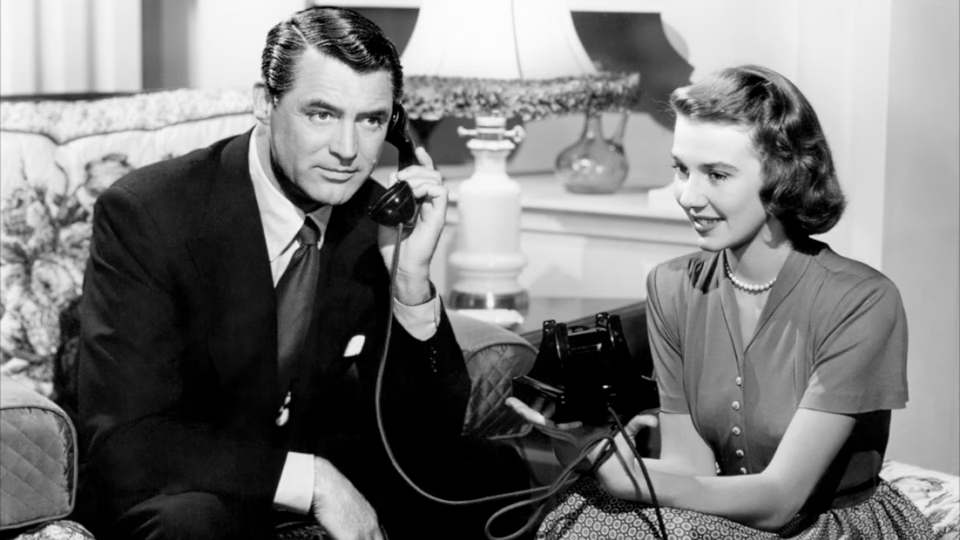Every Girl Should Be Married

Betsy Drake plays a department store clerk who obsesses over trapping a pediatrician, played by Cary Grant, into marriage.
A young woman exchanges a few words with a pediatrician at a magazine stand. They go their separate ways, but she fixates on him. She shows up at his office. She scrounges through his trash for details of his life. She pumps his friends, associates, and ex-girlfriends for information. She invents a relationship with her boss to make the doctor jealous. This lands the boss in the scandal sheet, but she doesn’t care. When none of this works, she threatens the doctor’s business.
Does this sound like a romantic comedy or a horror film? What if you flipped the genders? How did a story by Eleanor Harris in the October 1947 issue of Ladies’ Home Journal morph into this paranoid male fantasy masquerading as female empowerment?
Marc Eliot’s biography of Cary Grant offers clues. RKO studio head Howard Hughes allowed Grant, his close friend, to rewrite much of the script and even direct several scenes to shift the visual emphasis from himself to Drake, his real-life girlfriend1.
Hughes hoped to exploit Grant and Drake’s off-screen chemistry (which blossomed to marriage a year after the film’s release) ala Humphrey Bogart and Lauren Bacall.
But Drake is no Bacall, and Grant’s direction does her no favors. She speaks as though she’s trying to affect or mask an accent and her performance neither charms nor amuses. Though, to be fair, some shots elicit unintentional laughs, like the shot of her poking out of the kitchen pass-through window, cocktails in hand, the smile on her face meant to evoke a fantasy come true but hewing closer to Nicholson’s “Here’s Johnny” moment in The Shining.
Indeed, they’d have been better served embracing the male delusion and staging the film as an over-the-top black-comedy horror. With someone like Billy Wilder behind the camera, it might have worked. But we’ll never know.
Notes
-
Marc Eliot. Cary Grant (Crown, 2009), 262. ↩︎